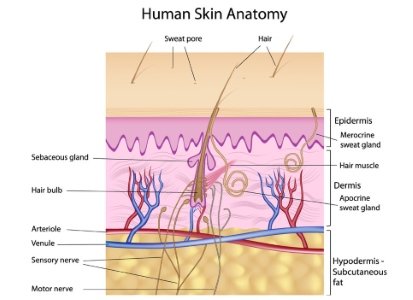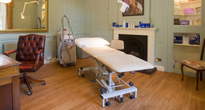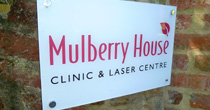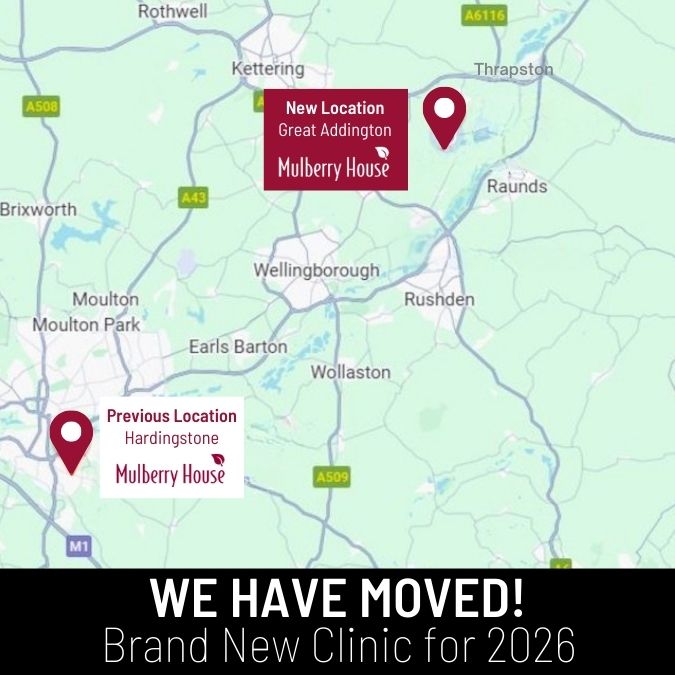Collagen is the key to youthful skin. It is what gives it its consistency, firmness, elasticity and structure.
Sadly, collagen production slows as we age and the reduction of collagen in the makeup of the skin is essentially what causes it to show signs of ageing.
Firstly lines and wrinkles appear, but then as things develop over time, the skin can start to look looser and a general sagginess sets in.
The chin becomes a ‘U’ shape as the definition of a more youthful ‘V’ is blurred.
Jawlines become lower and a general looseness appears.
Loss of collagen can also allow hollows to appear on the cheeks or below the eyes.
Why do we lose collagen?
It’s important to recognise that there are certain things that will accelerate loss of collagen in addition to the effects of the natural ageing process (where collagen stores are depleted and not replaced by the body’s renewal mechanisms).
Avoiding these means that you are potentially holding onto collagen a bit longer.
- Eating too much sugar interferes with collagen’s ability to repair itself. Eating refined carbohydrates has the same effect. Choosing a healthy diet which is high in protein and fresh veg/salad/fruit is beneficial to the skin as well as your overall health
- The UV radiation from the sun can reduce collagen production. Avoid excessive sun exposure and always wear high SPF sunscreen to protect your skin from the sun’s most harmful rays.
- Smoking impairs your skin’s ability to produce collagen production. Smokers can often find that their skin suffers from premature ageing.
So if you want to avoid premature signs of ageing, then it’s worth looking at your lifestyle choices to see if there’s anything you can do.
This is not a full list. Some autoimmune disorders, such as lupus, can also damage collagen. However, the above are things that you can choose to do something about.
Can supplements restore collagen?
The last few years have seen the launch of a number of supplements and drinks which claim to support collagen production.
Researchers have published an assessment entitled Collagen Supplements for Aging and Wrinkles: A Paradigm Shift in the Fields of Dermatology and Cosmetics which reviews the scientific evidence for collagen, both ingested and applied to the skin. The conclusion reads:
“Both oral and topical collagen can contribute to reducing or delaying skin aging. Future epidemiological studies with large sample sizes and thorough follow-up measures would be required to comprehensively understand the potential effects of these two types of collagen on the aging process.”
As the paper outlines, the studies carried out tend to have been quite small, so until further evidence is available, it’s hard to give a firm recommendation. Reviews from those who’ve tried them vary – some people swear by them while others are disappointed.
If you’re curious then it’s something you could try if you wish. Just bear in mind that there is more evidence in support of the benefits of a good diet, not smoking and avoiding the sun, so don’t skip those!
Dr John Tanqueray’s View
We asked Mulberry House Clinic founder, former GP and aesthetic doctor Dr John Tanqueray to offer his view:
“As far as collagen supplements are concerned my take is this: taking collagen supplements provides the body with the raw materials (amino acids) required to produce collagen, but this does not necessarily mean that collagen production will be stimulated, and of course the amino acids are not going to be directed specifically to the skin.
“I don’t think there is enough evidence at the moment to positively recommend them when there are other proven treatments available (such as those outlined below).
“If you work out what you could spend on collagen supplements over a year might there be a better way of directing your spending?”
Can treatments restore collagen?
The good news is that modern aesthetic medicine means that aesthetic doctors now have a number of ways in which to stimulate natural collagen production in the skin. The appeal of boosting your own collagen is enormous, as it represents a very natural solution to anti=ageing. Triggering collagen renewal effectively restores the skin to a more youthful state. It smooths out lines and wrinkles and can even ‘lift’ the skin, restoring some of the structure and reducing sagginess.
Top 7 Collagen-Boosting Treatments
- Ultherapy
Ultherapy treatment delivers ultrasound energy to the deeper layers of skin. This warms the inner tissues and stimulates the body’s natural healing responses, which means growth of new collagen. The results take 2-3 results to develop, as collagen production takes time. This means a gradual improvement in lines/wrinkles and the emergence of skin that is smoother and tighter. Ultherapy can also create a rejuvenating ‘lift’ effect.
→ Ultherapy Ultrasound Treatment - Sculptra Collagen-Boosting Injections
Sculptra is an injectable treatment which stimulates skin cells to produce more collagen. Again, results develop gradually, but the effect is natural and lasts well. The treatment replenishes lost volume in the skin and can also be used to create a ‘lift’
→ Sculptra collagenesis injections - Belotero Revive
Belotero Revive is another injectable product, but is different to Sculptra. Belotero® Revive is classed as a ‘skin booster’, which is best described as injections for skin quality. Skin boosters hydrate the skin but using different injecting techniques can also boost skin cell renewal and collagen production for a natural, flattering rejuvenation effect
→ Belotero Revive - Laser skin resurfacing
This is an advanced exfoliation treatment which works initially on the outer layer of skin to reveal a more radiant complexion. However, the treatment also has a deeper impact as it promotes growth of new skin cells and collagen, thereby improving the skin’s texture and firmness. You can expect immediate reduction in fine lines, but ongoing development of tighter skin as the collagen stores develop in the weeks following treatment.
→ ResurFX™ Fractional Non-Ablative Treatment - Cosmeceutical skincare
Studies have shown that vitamin C in skincare can boost collagen production, leading to improved skin texture that is firmer and tighter as well as showing fewer lines and wrinkles. However, for noticeable results, high strengths of vitamin C are required, which are not available on the high street. Cosmeceutical skincare is medical grade and requires prescription from a trained specialist. Through daily application, sometimes building up to higher strengths, remarkable results can be achieved. You can also expect improvement in skin tone and hyperpigmentation. Our favourite at Mulberry House Clinics is ZO Skin Health, a comprehensive range which can achieve great outcomes. We do have other brands available where required
→ Prescription Skincare - TIXEL
TIXEL thermal fractional rejuvenation uses heat energy to stimulate the skin and trigger production of new collagen. It is less disruptive than Resurfx laser resurfacing, with patients experiencing less side effects such as redness/swelling. Compared to Ultherapy, it works more superficially at the skin’s surface, so is a good choice for improving surface texture, smoothness, pores and superficial scarring.
→ TIXEL thermal fractional rejuvenation - Plenhyage XL
Plenhyage XL is an injectable Polynucleotide. It uses DNA fragments to stimulate the skin (bioregeneration). New collagen growth boosts the thickness, elasticity and hydration of the skin for a younger look.
This is a new treatment, coming soon to Mulberry House Clinic. Contact us to be the first to find out more!
Not sure what’s right for you? We’re very happy to help and advise. Contact our friendly team for more information.
Mulberry House Clinic
Established 2003
Mulberry House Clinic has an excellent reputation in the Northampton area as an independent, doctor-led practice with vast experience of the industry. Cosmetic skin treatments are carried out by Dr John Tanqueray, who works closely with leading manufacturers to remain at the forefront of the medical aesthetics.
A private consultation is the starting point for all patients in order to facilitate a full discussion about the desired results as well as detailed facial and skin assessment. Find out more about first consultation.
For further information or to arrange a confidential consultation, please complete our contact form, call 01604 702630 or email: info@mulberryhouseclinic.co.uk.







